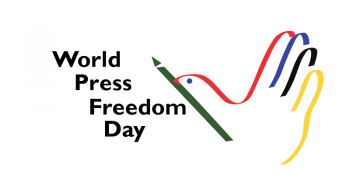World Press Freedom Day 2020: The role of the press is critical in revealing human rights abuses in East Turkistan

For immediate release
May 1, 2020 12:00 pm EST
Contact: Uyghur Human Rights Project (UHRP) +1 (202) 790-1795, (703) 217-7266
On World Press Freedom Day, UHRP recognizes the vital work of journalists in bringing to light the human rights crisis in East Turkistan. China is one of the most restrictive countries in the world for journalists, remaining at 177th place out of 180 states in Reporters Without Borders’ 2020 World Press Freedom Index. A 2020 report by Freedom House found that China is also expanding its ability to influence the media in other countries by “promoting the CCP’s narratives, suppressing critical viewpoints, and managing content delivery systems.”
The Chinese government takes great effort to prevent free reporting on the ground in the region; the Foreign Correspondents Club of China’s 2018 report on journalists’ working conditions stated increased reports of harassment and surveillance were driven by incidents in XUAR, where “[m]any of the journalists who travelled there were visibly followed, physically blocked from areas and pressured to delete the contents of their reporting materials. Some were even denied hotel rooms.”
Reporting on conditions in East Turkistan has long been a red line for the Chinese government; reporters who have written critical and important stories on Uyghur human rights violations, such as Ursula Gauthier in 2015 and Megha Rajagopalan in 2018, have been denied visas. However, conditions are becoming even more challenging. In 2020, the Chinese government expelled reporters from the New York Times, Wall Street Journal and Washington Post. All three of these newspapers have published groundbreaking stories bringing to light critical facts about the crackdown in East Turkistan, including reports on forced labor, the high-tech police state, and the effect of internment camps on the region.
“The behavior of the CCP’s central and regional authorities is ample evidence that they are conducting a cover-up,” said UHRP Executive Director Omer Kanat. “As the Chinese government ramps up disinformation efforts in response to reporting on their human rights abuses in East Turkistan, international audiences should ask themselves, ‘What are they trying to hide?'”
There is no room for Uyghurs to report on the ground in their homeland. For years Uyghurs have made up a disproportionate number of imprisoned journalists in China; since the beginning of the crackdown those numbers have swelled as authorities have targeted the Uyghur intellectual elite. Uyghurs who work as reporters covering events in East Turkistan are also not free from persecution. The Chinese government has retaliated against the Uyghur language journalists at U.S.-based Radio Free Asia by targeting their family members in an attempt to silence them.
The Chinese government must not be given a free pass to spread disinformation even as the make their own society increasingly opaque. For Uyghurs, the ability to investigate and report the truth is a matter of life or death. Freedom of the press is a critical human right, upheld in the Universal Declaration of Human Rights and International Covenant on Civil and Political Rights (ICCPR) and guaranteed by China’s own Constitution.
